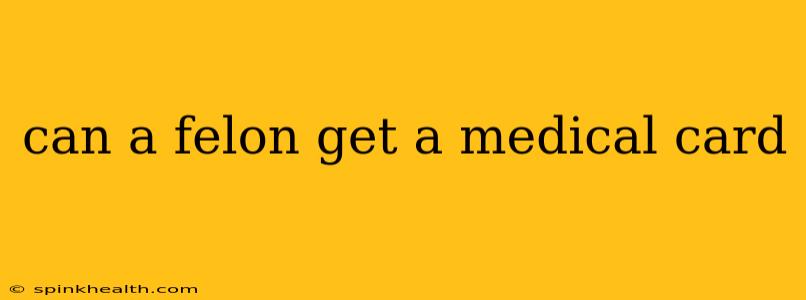Can a Felon Get a Medical Card? Navigating the Complexities of Cannabis Access
The question of whether a felon can obtain a medical cannabis card is a complex one, with the answer varying significantly depending on the specific state and the nature of the felony conviction. There’s no simple yes or no answer, and it's a journey filled with potential hurdles and legal nuances. Let's delve into this intricate landscape.
Imagine Sarah, a former accountant with a past conviction for embezzlement. Years later, she suffers from chronic pain that traditional medications haven't effectively addressed. She's heard about medical cannabis and wonders if her criminal record will bar her from accessing this potential treatment. This is a scenario faced by many individuals across the country.
What States Consider Felony Convictions?
Many states with medical cannabis programs don't explicitly exclude felons from eligibility. However, the process is often far from straightforward. The critical factor is the specific language of the state's medical cannabis law. Some states might have broad eligibility criteria, while others may include disqualifying factors related to certain types of felony convictions. For example, convictions related to drug trafficking might be grounds for denial, even in states with otherwise lenient policies.
Does the Type of Felony Matter?
Absolutely. As mentioned above, the type of felony conviction significantly impacts eligibility. States generally differentiate between non-violent and violent felonies. A conviction for a non-violent offense like embezzlement (like Sarah's situation) might not be an automatic bar, while a violent felony conviction could be. Furthermore, the severity of the felony and the time elapsed since the conviction can also influence the decision-making process.
What About Expunged or Pardoned Felonies?
This is an area where things get a little clearer. Generally, states will consider expunged or pardoned felonies to be less of a barrier, if they are considered at all. An expungement essentially removes the conviction from your official record, making it as if it never happened. A pardon, while not always resulting in record removal, demonstrates a formal forgiveness by the state. However, it’s crucial to confirm this with the relevant state authorities as policies vary.
What are the Specific Requirements in My State?
This is the most important question to answer. The specifics of eligibility vary dramatically by state. Each state’s medical cannabis program has its own set of regulations and application processes. It's crucial to thoroughly research your state’s specific laws and regulations concerning medical cannabis eligibility and the impact of felony convictions. This usually involves checking the state's health department website or consulting with a legal professional specializing in medical cannabis law.
What if I'm Denied?
If your application is denied due to your felony conviction, you might need to explore legal avenues, such as appealing the decision or seeking legal counsel to understand your options. Remember, each case is unique, and the legal landscape is constantly evolving.
In conclusion, while a felony conviction doesn't automatically disqualify someone from obtaining a medical cannabis card, it significantly complicates the process. Thorough research into your specific state’s laws and careful consideration of your individual circumstances are crucial. Seeking advice from a legal professional specializing in cannabis law is highly recommended before embarking on the application process. Sarah’s situation, for instance, might require her to consult with a lawyer to navigate the legal complexities and determine her eligibility based on her specific circumstances and state laws. Remember, navigating this path requires patience, diligence, and informed action.

